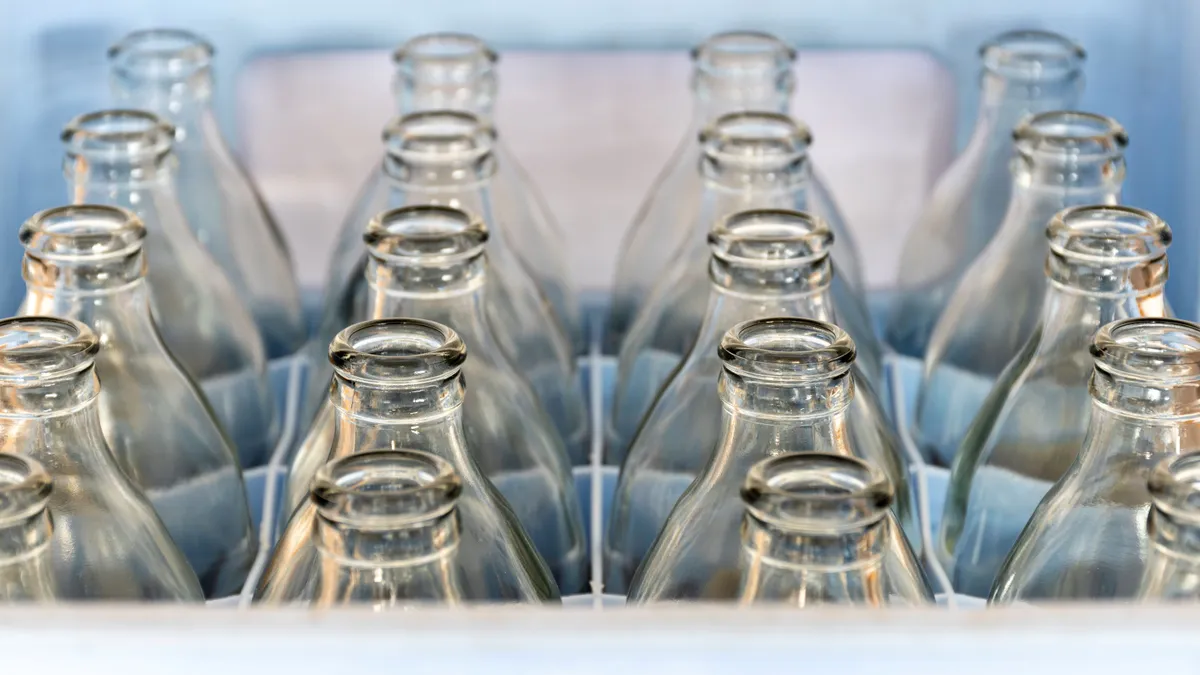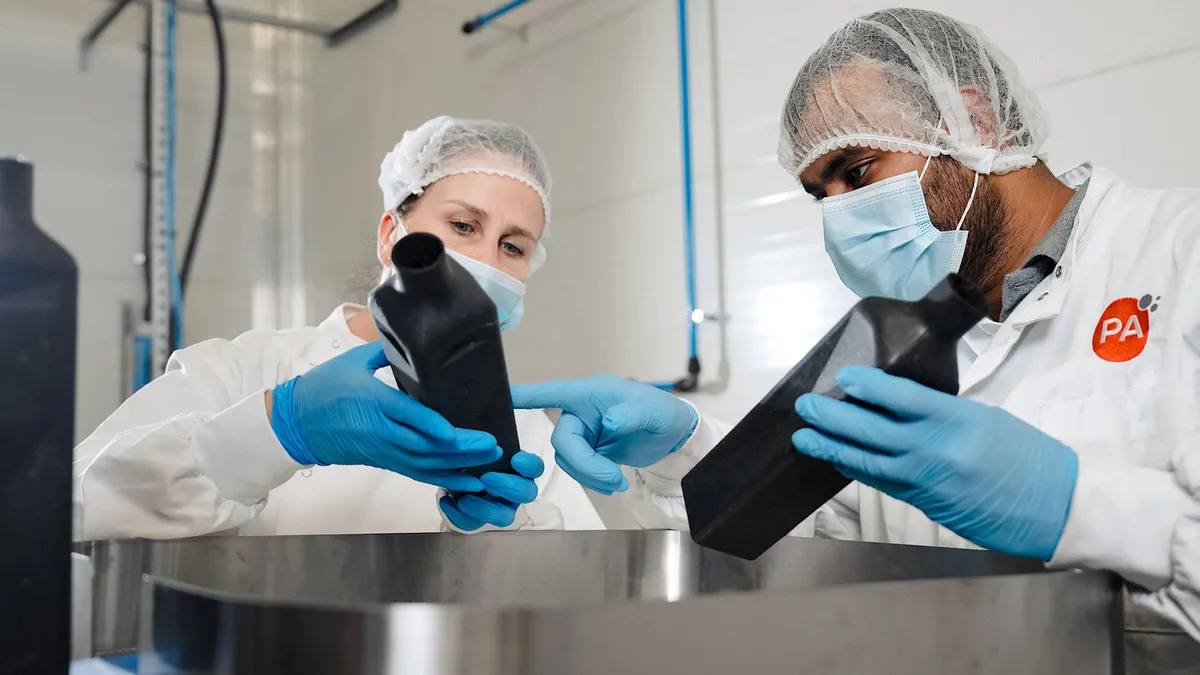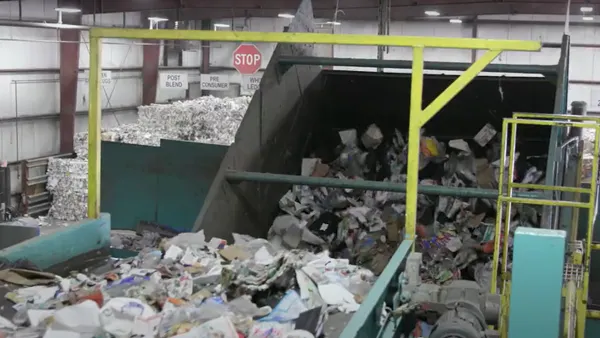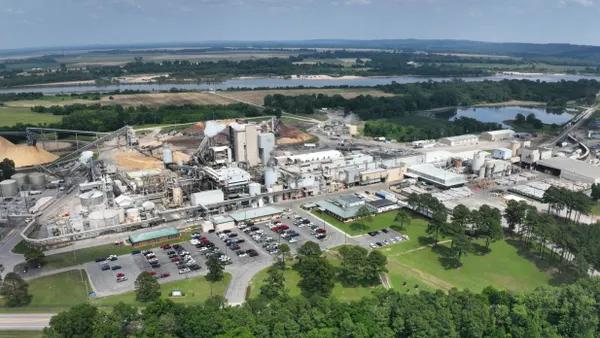O-I Glass said Friday it is disappointed by the U.S. Department of Energy’s announcement a week prior that it was terminating a more than $57 million award to the company. That money was supposed to go toward enhancements at the company’s Zanesville, Ohio, glass manufacturing facility.
“The Zanesville project was designed to be a generational investment in American manufacturing, the state of Ohio, and to make our industry more competitive,” O-I Glass said in an emailed statement. “With support from the DOE’s Industrial Demonstrations Program, this pilot project aimed to integrate five proven, cutting-edge furnace technologies—waste heat recovery, gas/oxygen firing, batch and cullet pre-heating, and electric boost—into a single transformative system.”
O-I said that this would have been “the first time all five proven technologies were deployed together,” which the company said would have had energy reduction and economic benefits, and increased the use of recycled material. Specifically, the project could have added more than 300 contracting jobs and reduced emissions by 49%, also helping customers reach their scope 3 targets.
O-I did not comment on the status of the project in the wake of the federal funding reversal. The company did, however, say in the statement it is “evaluating all available options before the company due to this reversal.”
“O-I stands by the viability and potential impact of this project that was vetted and agreed upon by DOE’s team of experts,” the company wrote. “While the DOE’s decision cites a shift in policy priorities and a reassessment of emissions accounting methodology, we believe the project remains aligned with the broader goals of strengthening domestic manufacturing, making American made products more competitive and sustainable.”
O-I’s project was one of 24 decarbonization awards on the chopping block in DOE’s notice. Some others in the glass space were also affected, including Gallo Glass, which had planned to install a demonstration hybrid electric furnace at its Modesto, California, site, backed by a $75 million award.
The list also extended far beyond glass; other companies affected included Exxon Mobil, Eastman, Kraft Heinz and Diageo. DOE said in its announcement that it “found that these projects failed to advance the energy needs of the American people, were not economically viable and would not generate a positive return on investment of taxpayer dollars.”
The Glass Packaging Institute railed against these cuts, what it called a “surprising decision to abruptly terminate funding for multiple industrial decarbonization projects — including shovel-ready initiatives from U.S. glass manufacturers — while allowing projects from other material sectors, such as steel and aluminum to move forward.”
“Glass manufacturing recipients were informed that their projects did not ‘effectuate current priorities’ and lacked full-scope emissions modeling — despite providing shovel-ready, technologically sound, and financially responsible decarbonization strategies in support of the next generation of American manufacturing careers,” GPI said in an emailed statement.
GPI said that other federal agencies have recognized the pressure domestic suppliers are under from Chinese competition. Such issues have previously prompted trade investigations by the U.S. Department of Commerce and International Trade Commission.
“Glass is an often overlooked American success story, and it’s unacceptable to see vetted projects that advance American manufacturing competitiveness cut,” said GPI President Scott DeFife. “The Department should lean into glass, not ignore it." GPI called on DOE to meet with industry stakeholders “to ensure future opportunities reflect the full range of American manufacturing.”













